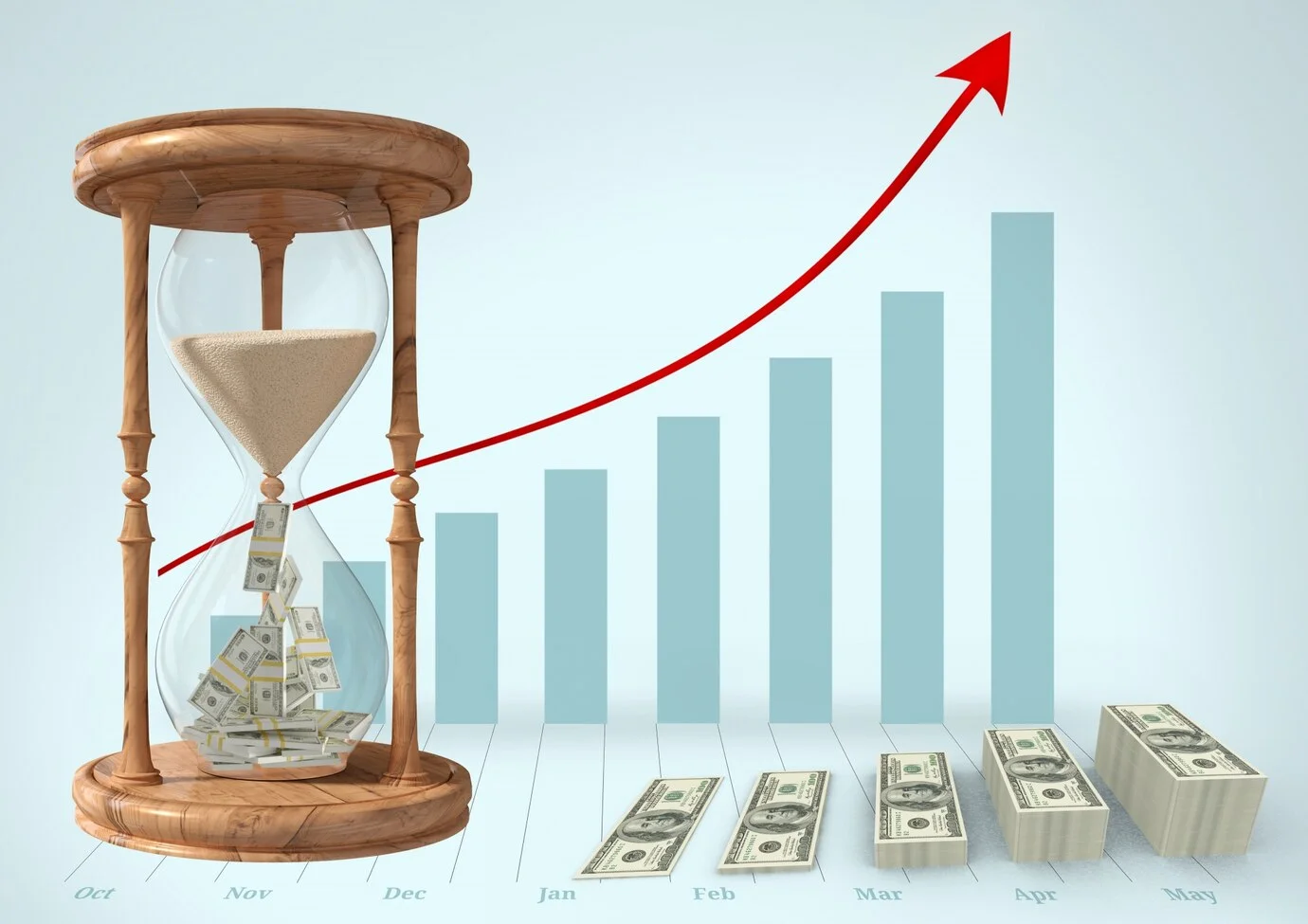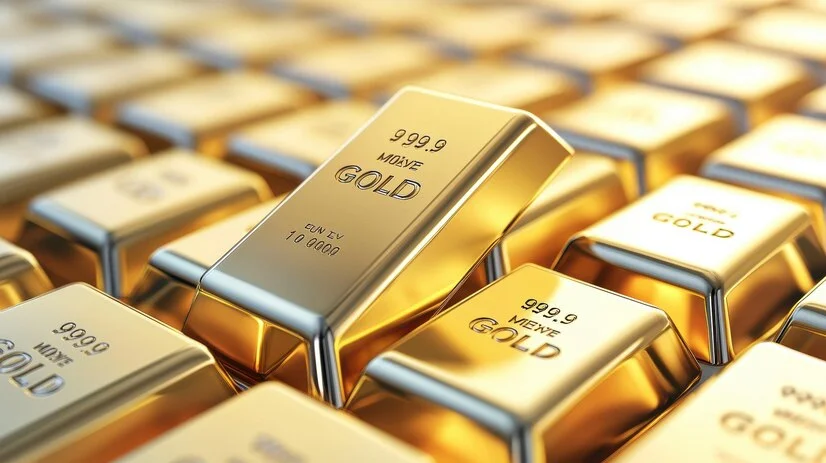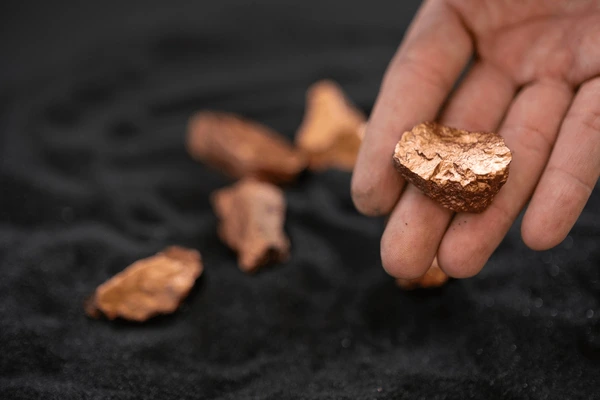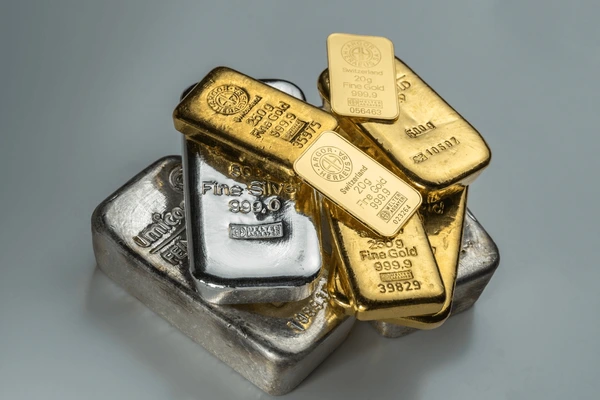Sayanava Sinha Roy
22.02.2025
The Relationship Between Gold Prices and Inflation Rates
Understanding the relationship between gold prices and inflation rates can help you make smarter financial decisions. Learn how inflation impacts gold value and why it remains a safe-haven asset.
Gold has been a symbol of wealth and financial security for centuries. But beyond its aesthetic appeal, it holds a critical role in the global economy. When inflation rises, the purchasing power of money declines, making tangible assets like gold more valuable. This connection between gold prices and inflation rates has intrigued economists, investors, and ordinary people looking to safeguard their wealth.
Table of Contents
But what exactly happens to gold prices during inflation? And why is gold considered a hedge against economic instability? In this article, we will explore the intricate relationship between inflation and gold prices, breaking it down in a simple, easy-to-understand way.

Understanding Inflation and Its Economic Impact
What Is Inflation?
Inflation refers to the rate at which the general level of prices for goods and services rises, leading to a decrease in the purchasing power of money. Simply put, when inflation occurs, you need more money to buy the same amount of goods.
What Causes Inflation?
Several factors contribute to inflation, including:
- Demand-Pull Inflation: When demand for goods and services exceeds supply, prices rise.
- Cost-Push Inflation: When the cost of production increases (e.g., rising wages or raw material costs), businesses pass those costs on to consumers.
- Monetary Inflation: When a government prints more money, the currency loses value, leading to inflation.
Inflation affects every aspect of the economy, from daily expenses to long-term investments, and even gold prices.
Gold Prices and Inflation Rates: What’s the Connection?
Gold is often referred to as an inflation hedge. But why? The key reason is that gold retains its value over time, making it an attractive asset during periods of economic uncertainty.
How Does Inflation Influence Gold Prices?
- Gold as a Store of Value: When inflation rises, the value of paper currency declines. Since gold is a tangible asset, investors flock to it as a way to preserve their wealth.
- Supply and Demand: As more investors buy gold during inflationary periods, the demand increases, pushing prices higher.
- Market Perception: Gold is perceived as a “safe haven.” Even when inflation expectations rise, people start investing in gold, causing prices to surge.
Historically, gold prices have shown an inverse relationship with currency value. When inflation devalues money, gold prices tend to rise.
Historical Trends of Gold Prices and Inflation
To understand this relationship better, let’s look at some real-world examples:
- 1970s Stagflation: During the 1970s, the U.S. faced high inflation, and gold prices skyrocketed from $35 per ounce in 1971 to nearly $850 in 1980.
- 2008 Financial Crisis: The global financial meltdown led to massive inflationary concerns, causing gold prices to surge to record highs in the following years.
- COVID-19 Pandemic: With economic uncertainty and rising inflation fears, gold prices reached all-time highs in 2020 as investors sought safe assets.
These examples show a clear pattern—whenever inflation rises, gold prices tend to increase as well.

Factors That Influence Gold Prices Beyond Inflation
While inflation plays a significant role, other factors also impact gold prices:
1. Central Bank Policies
- Interest rate hikes by central banks can sometimes weaken gold prices, as higher rates make other investments more attractive.
- However, when central banks keep interest rates low to combat inflation, gold becomes a more attractive investment.
2. Global Economic Uncertainty
- Political tensions, stock market fluctuations, and financial crises often drive investors toward gold as a safe-haven asset.
3. U.S. Dollar Strength
- Since gold is traded in U.S. dollars, a stronger dollar can make gold more expensive for international buyers, leading to lower demand. Conversely, a weaker dollar makes gold more attractive, pushing prices up.
4. Gold Mining and Supply Constraints
- Limited gold production can drive prices higher, especially if demand remains strong during inflationary periods.
How to Use Gold as an Inflation Hedge
If you’re worried about inflation affecting your savings, gold can be a strategic investment. Here are some ways to incorporate gold into your financial plan:
1. Invest in Physical Gold
- Buy gold coins, bars, or jewelry as a direct way to preserve wealth.
- Ensure proper storage and security.
2. Gold Exchange-Traded Funds (ETFs)
- Gold ETFs allow investors to gain exposure to gold prices without holding physical gold.
- They are a convenient way to invest in gold without storage concerns.
3. Gold Mining Stocks
- Investing in gold mining companies can be another way to benefit from rising gold prices.
- However, these stocks are also influenced by company performance and industry trends.
4. Diversify Your Portfolio
- Don’t rely solely on gold—combine it with stocks, real estate, and other investments to reduce risk.
If you want to know more about why do gold prices fluctuate and the key factors then you can visit here

FAQs on Gold Prices and Inflation Rates
1. Why does gold do well during inflation?
Gold holds intrinsic value and is seen as a safe store of wealth. When inflation erodes the value of paper money, gold retains its purchasing power.
2. Is gold a good long-term investment?
Gold is not just for short-term gains; it has historically preserved wealth over the long term, especially during economic crises.
3. Should I invest in gold when inflation is low?
Yes. Even during periods of low inflation, gold can act as a diversification tool to protect against future uncertainties.
4. How do interest rates affect gold prices?
Higher interest rates make bonds and savings accounts more attractive, sometimes reducing gold demand. However, during inflationary periods, gold prices generally rise despite interest rate hikes.
Gold Prices and Inflation Rates: Smart Strategies to Protect Your Wealth
The relationship between gold prices and inflation rates is deeply connected, making gold one of the most reliable assets during economic uncertainty. Whether inflation is on the rise or the economy is facing instability, gold remains a strong safeguard for investors looking to protect their wealth.
If you’re considering investing in gold or selling your gold assets, ensure you deal with a reputable expert. The best gold buyer in Kolkata offers professional guidance and fair pricing to help you make informed decisions.
By understanding the impact of inflation on gold prices, you can make smarter financial choices and safeguard your wealth for the future.
Popular Post



